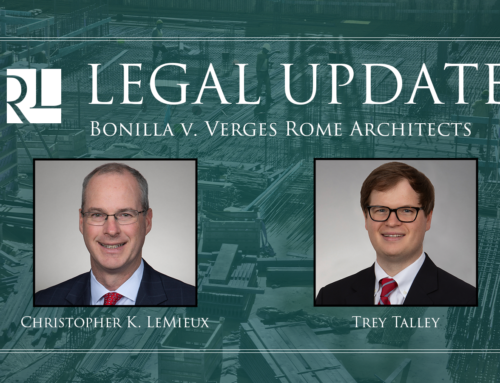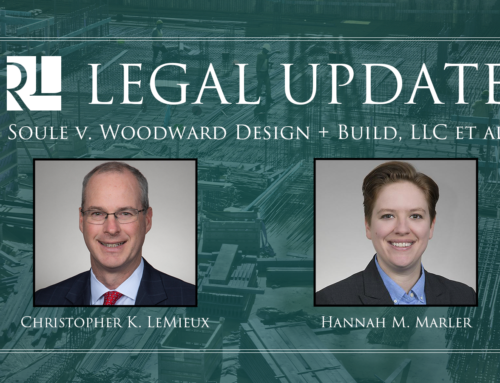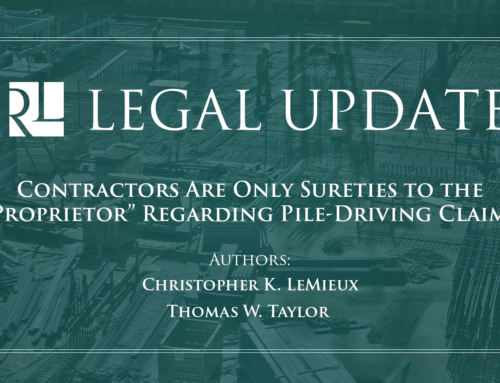A recent decision from the Louisiana First Circuit serves as a reminder of the importance of reducing oral lease agreements to writing, as well as under what circumstances a lessor owes a duty to protect a lessee from criminal acts of third persons. The failure to put a lease agreement in writing can make it difficult for a lessee to protect its interests if there is a loss or damage to property, particularly if there is a dispute over the terms of the agreement.
In Haynes Interests, LLC v. Garney Companies, 2019-0723 (La. App. 1 Cir. 2/26/21), the First Circuit addressed a dispute in which Haynes, the plaintiff, granted a servitude to the East Baton Rouge Sewerage Commission for the construction of a new sewer line. During construction, Haynes alleged that some of its personal property stored near the construction site (which was on the servitude) was stolen and that the Commission was liable for permitting the theft by not taking proper security measures. Haynes asserted that under Louisiana Civil Code art. 667, the Commission, as owner of the servitude, was a “proprietor” who had “deprive[d] [its] neighbor of enjoyment or cause[d] damage to” Haynes and was thereby liable to Haynes. The First Circuit disagreed. While “proprietor” has been read expansively to encompass those whose rights derive from the landowner, in this instance Haynes as owner could not be a “neighbor” because he owned the property which was subject to the servitude.
Haynes also alleged the breach of an oral lease agreement with another defendant, Garney, for the theft of its personal property. Haynes asserted that Garney was liable for the theft of its property because the terms of the oral lease agreement required Garney to follow certain security measures. The parties agreed that an oral lease agreement existed, but the scope of Garney’s duty to Haynes for the security of the property depended upon terms which were disputed. The court reiterated that there is generally no legal duty to protect others from criminal activities of third persons, but there are exceptions to this rule under Louisiana law. The court must employ a duty-risk analysis to determine what duty is owed, which requires the court to examine the foreseeability and the gravity of the risk. Because there was a dispute between lessor and lessee regarding what security measures were agreed upon in the oral lease, the court denied the plaintiff’s summary judgment motion. This is an important reminder that the terms of an oral lease should be reduced to writing to clarify the rights and obligations of the parties.



